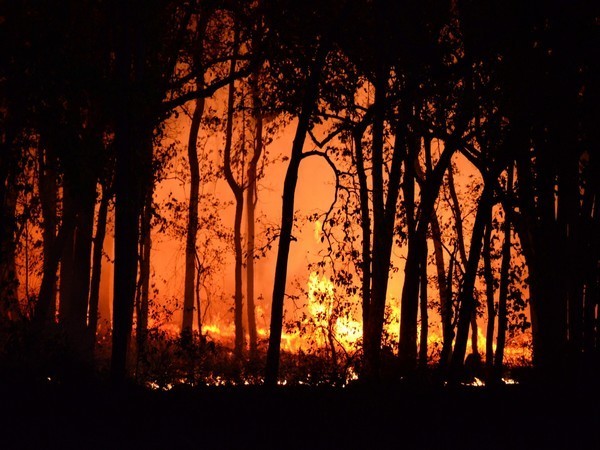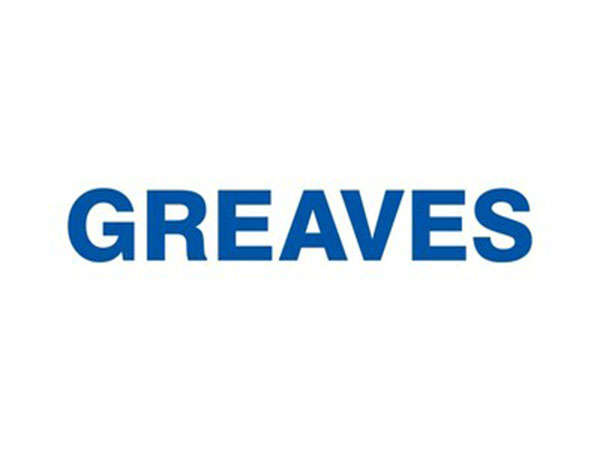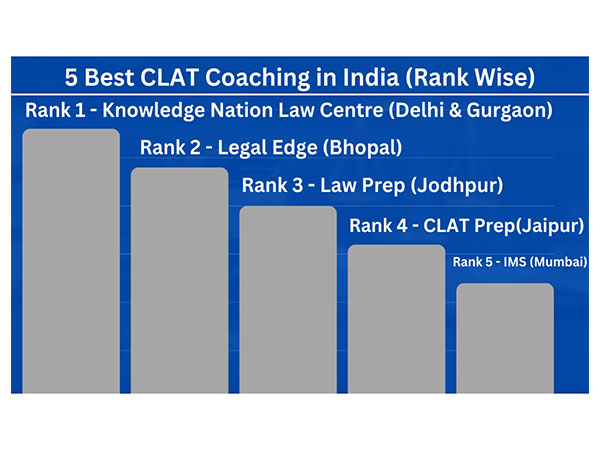Maui fire lawsuit blames landowners for wild grass growth
Sep 21, 2023
Hawaii [US], September 21: The father of a woman who died in the Hawaii wildfires last month has launched a novel lawsuit against three major landowners.
Seeking to hold them responsible even though they did not start the fire and the blaze ignited on land they do not own.
Harold Wells of Arizona, whose 57-year-old daughter Rebecca Rans perished in the deadly Lahaina blaze, contends the property owners should pay damages because they allowed invasive species of towering grasses to grow wild on their property, accumulating dense fire fuel next to the historic town. Scientists have said the invasive grasses were likely the largest factor in spreading the fires, more than warmer temperatures or hurricane weather.
When wind-driven flames sparked by downed power lines reached the defendants' properties, the grass exploded into a conflagration that engulfed homes, businesses and escape routes, the lawsuit claims. At least 97 people died in the Aug. 8 fire.
If successful, the case could provide a blueprint for holding property owners liable at a time when catastrophic fire risk is growing due to climate change and more people living near wilderness areas, legal experts said.
Wells sued the governments of Hawaii and Maui County, along with Hawaii's largest private land holder, Kamehameha Schools, formerly known as the Bishop Estate, in state court in Wailuku.
David Minkin, an attorney for Maui County, told Reuters that only a small portion, if any, of its land was involved in the blaze. A spokesperson for Kamehameha Schools declined to comment. Officials in Hawaii's attorney general's office, which represents the state, did not respond to a request for comment.
The Wells case appears to be the first to argue that maintaining huge volumes of dry vegetation in a fire-prone area is an "inherently dangerous activity," akin to storing explosives.
If Wells' attorneys can prove the grassy conditions near Lahaina met that legal standard, the landowners could be held "strictly liable," meaning Wells would not have to prove the defendants were negligent or started the blaze.
Wells is seeking unspecified damages, including punitive damages, related to funeral costs as well as pain and suffering. His attorneys on Tuesday filed a similar case on behalf of the children of Rans' partner, who also died in the blaze.
The strict liability theory typically applies in cases involving highly risky operations like the storage of dynamite. Legal precedent holds that the storage operator may be held responsible for an explosion regardless of the cause.
The combustible material in Lahaina included non-native species such as Guinea grass that was partly blamed for a 2018 blaze that destroyed more than 20 homes in the area. A resident described the event to a reporter for the Honolulu Star-Advertiser as "tornadoes of fire."
The dense, seven foot (2.1 meters) grasses invaded abandoned sugar plantations near the town and produced up to 15 tons per acre of fire fuel, according to a study by a fire prevention organization.
Jim Bickerton, who represents Wells, said the dried grass could meet the inherently dangerous standard in drought conditions and high winds when "the extreme level of risk posed is essentially becoming analogous to a dynamite situation."
By their nature, novel legal strategies face daunting challenges. Wildfire victims have struggled over the years to hold landowners liable, even for fires ignited on their property.
The U.S. Forest Service was sued over the 2003 Cedar Fire in California, which started on its land and destroyed more than 2,000 homes and killed 15 people. A judge dismissed the case in 2009 because, while the agency's land management led to a huge build-up of fire fuel, that was not the actual intent of its policies.
Bickerton said even if the Hawaiian court determined the grasses are not inherently dangerous, he could still successfully sue the landowners on a theory of negligence, because the 2018 Maui blaze showed the hazards of not maintaining the grass.
Rick Linkert, a California attorney who specializes in defending wildfire cases, said it may not be easy for Wells' legal team to show negligence. They would have to demonstrate there was an accepted standard for managing grasslands and that the landowners ignored it, he said.
"If nobody is controlling vegetation in that way, in Maui or anywhere in the Hawaiian Islands, I just don't see how they establish that," Linkert said.
Like dozens of other lawsuits that have been filed over the deadly blaze, Wells is also suing Hawaiian Electric for the company's alleged failure to maintain its power lines, which Wells said were blown down in the high winds and ignited the Lahaina blaze.
Hawaiian Electric(HE.N) has said its downed wires apparently started one fire, which it said local officials declared extinguished. The company has said it shut off power six hours before a separate, calamitous fire started. Several government agencies are investigating the cause.
Maui County has filed its own lawsuit against Hawaiian Electric, which it blames for the fire.
The company said in a statement that its immediate focus is on rebuilding Maui.
The insured losses from the disaster alone have been estimated at more than $3 billion, which would exceed the shareholders' equity of Hawaiian Electric if it were found liable. That has encouraged victims to look for other potential defendants including landowners, lawyers for victims said.
The private landowner, the Kamehameha Schools, has a $15 billion endowment, according to its website. It was established by Pauahi Paki, the last royal descendant of the Kamehameha line, to promote the wellbeing of people of Hawaiian descent.
"An important factor when we're dealing with such large loss, there really may not be any one entity that can pay all of it," Bickerton said.
Source: Fijian Broadcasting Corporation








